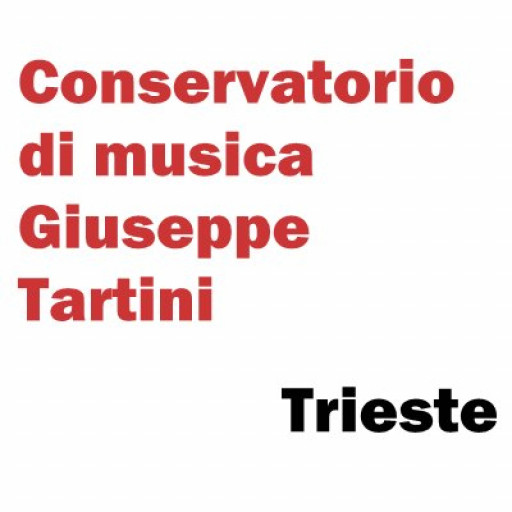Photos of university / #oxford_uni
The Bachelor of Arts (BA) in Music — Composition at the University of Oxford offers a comprehensive and rigorous education in the art of musical creation, combining historical, theoretical, and practical approaches to composition. This program provides students with a unique opportunity to develop their individual voice as composers while engaging deeply with the rich musical traditions of the past and present. Students will explore a wide range of musical styles, techniques, and technologies, supported by world-class faculty and resources. The curriculum emphasizes both the craft of composition and the broader context of music as an art form, encouraging students to experiment, innovate, and refine their creative ideas through coursework, private tutorials, and guided projects. The program also includes opportunities for collaborative work, allowing students to compose for various ensembles and media, and to participate in concerts and workshops that showcase their work. Students are encouraged to think critically about their compositions, incorporating knowledge of music theory, harmony, orchestration, and digital tools to enhance their creative process. Throughout their studies, students will be exposed to contemporary trends in music, as well as historical and cultural perspectives, fostering well-rounded and insightful composers. The Oxford environment promotes intellectual curiosity, independence, and discipline, vital qualities for success in professional and artistic pursuits. Graduates of this program are well-equipped to pursue careers in musical composition, film scoring, media music, or further academic study. The program culminates in a significant portfolio of original compositions, demonstrating technical skill, originality, and expressive power. With access to extensive resources, including libraries, recording facilities, and performance spaces, students will have the support needed to develop their talents to the fullest. The Oxford BA in Music — Composition prepares students not only to become skilled composers but also to contribute innovatively to the evolving landscape of music in society.
The Master of Philosophy in Music (Composition) introduces a broad range of current methodologies and approaches in music scholarship.
The first year of the course is identical to that of the MSt in Music (Composition).
In order to proceed to the second year of the MPhil, you will normally need to obtain an average of 65% for your first year work overall, and a mark of over 70 in your composition portfolio.
The second year is spent producing coursework, comprising a project of 8,000 to 12,000 words (which could be a short dissertation, analysis portfolio, portfolio of essays of ethnomusicological work, or critical edition) and a portfolio of at least two well-contrasted compositions totalling between 35 and 45 minutes in duration.
Applicants are normally expected to be predicted or have achieved a first-class or strong upper second-class undergraduate degree with honours (or equivalent international qualifications), as a minimum, in music or related fields.
For applicants with a degree from the USA, the minimum GPA sought is 3.6 out of 4.0.
However, entrance is very competitive and most successful applicants have a GPA of 3.7, a first-class degree or the equivalent.
If you hold non-UK qualifications and wish to check how your qualifications match these requirements, you can contact the National Recognition Information Centre for the United Kingdom (UK NARIC).
Relevant professional experience may be considered as a substitute for academic attainment.
The minimum Graduate Record Examination (GRE) score sought is 163 (Verbal). However, since entrance is very competitive most successful applicants will have a GRE score of 166 (Verbal) or more.
- Official transcript(s)
- CV/résumé
- Statement of purpose/personal statement: Up to 1,000 words
- Written work:One essay of up to 3,000 words
- Portfolio: Two or three compositions with a combined duration of 30 minutes
- References/letters of recommendation:Three overall, generally academic
ENGLISH LANGUAGE REQUIREMENTS
Higher level
|
est |
Standard level scores |
Higher level scores |
||
|
IELTS Academic |
7.0 | Minimum 6.5 per component | 7.5 | Minimum 7.0 per component |
|
TOEFL iBT |
100 |
Minimum component scores:
|
110 |
Minimum component scores:
|
| Cambridge Certificate of Proficiency in English (CPE) | 185 |
Minimum 176 per component |
191 |
Minimum 185 per component |
| Cambridge Certificate of Advanced English (CAE) | 185 |
Minimum 176 per component |
191 |
Minimum 185 |
- Global Education
- Hill Foundation Scholarships
- Ertegun Scholarship Programme
The University of Oxford offers a distinguished program in Music — Composition, designed to develop students' skills in creative composition, understanding of musical structures, and the theoretical foundations of music. The program emphasizes a comprehensive approach, combining practical composition work with rigorous academic study of music history, theory, and analysis. Students are encouraged to explore a wide range of musical styles and genres, from classical to contemporary, fostering versatility and innovation in their compositional practice. The curriculum includes individual tutorials, seminars, and workshops led by distinguished faculty and visiting artists, providing personalized feedback and mentorship. Composition students have access to state-of-the-art facilities, including dedicated rehearsal and recording spaces, allowing them to experiment and refine their work in a professional environment. The program also promotes interdisciplinary collaboration, enabling students to engage with other departments such as musicology, performance, and electronic music. Throughout their studies, students participate in concerts, commissions, and collaborative projects that help them build a professional portfolio. Graduates of the program often go on to successful careers as composers, performers, educators, and industry professionals. The program fosters not only technical skill and artistic expression but also critical thinking and contextual understanding, preparing students to contribute meaningfully to the evolving landscape of music. Admissions are highly competitive, requiring a strong portfolio of original work, musical talent, and academic excellence. The Oxford music program's rich tradition, combined with access to a vibrant university community and extensive cultural resources, provides an ideal environment for aspiring composers to flourish and realize their artistic potential.







